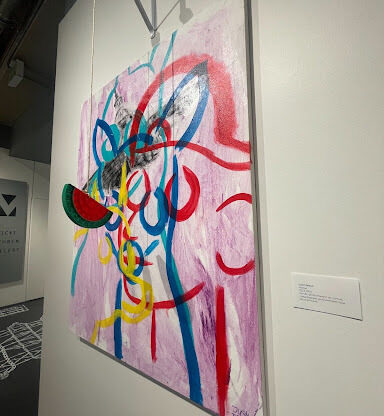On Monday, Kendrick Lamar, the 30-year old rapper hailing from the streets of Compton, won the Pulitzer prize for music. Entering into the annals of history, Lamar is the first artist to win the prize who operates outside of jazz or classical genres. The awarding of the prize to Lamar, a black artist whose music tackles poignant and timely topics that range from police brutality and current politics to the darkest depths of the human condition, is a testament not only to strength of his work but more importantly, to the artistic capacity of rap and hip-hop.
The award is more about hip-hop and rap than it is about Lamar himself. While some could see the award going to an album so far outside the typical candidate stream, one deeply embedded in pop culture, as a desperate attempt by the committee to find or feign relevance, it seems far more so an honest breaking down of what we constitute as “high” and “low” art.
By placing Lamar, his unapologetic blackness and the subversive, popular and frequently profantic genre he represents among the canon of great American music, the committee gave a nod not only to the artistic and cultural merit of Lamar, but to rap music itself. By awarding the prize to “DAMN.,” an album that places deeply introspective lyrics with the fast rattle of trap beats, the committee made it clear that hip-hop music, which in 2017 became the most popular genre in the United States, produces just as much genius as any of the typically recognized forms. In addition, the committee recognized the genre, which has for its entire history been honest in its subversiveness to the mainstream American consciousness, at the height of its power and influence. Most genres that come about as subversive, disruptive branches to the narrative mainstream receive their recognition years, if not decades, later (think jazz’s roots, or the rebellious punk of the 1970s). The committee decision shows recognition for one of the genre’s own innovators at the height of both his and hip-hop’s pervasive appeal.
Though some (including myself), might argue that Lamar’s 2015 critically acclaimed tour-de-force “To Pimp a Butterfly” deserved the award more, “DAMN.” was more popular as an album, showing that the artist could provide instantly replayable, popular tracks that took inspiration from hip-hop’s current obsession with trap beats, but still with the poetic lyrics and themes his audience had come to expect. Its sonic landscape was as well more explorative and different to the typical award winners than “To Pimp a Butterfly.”
While Lamar has already received an immense amount of critical and commercial praise for his work, the Pulitzer seems aimed to show that Lamar’s contribution to music and popular culture is far more important and extensive than what might be inferred at first glance. The Pulitzer places Lamar as a marker of legacy, a pin in the timeline of American music. It shows that Lamar’s music is so reflective of the experience of Americans —especially black Americans—in our time that it is to be recognized for all history as the essential musical portrait of 2017.











